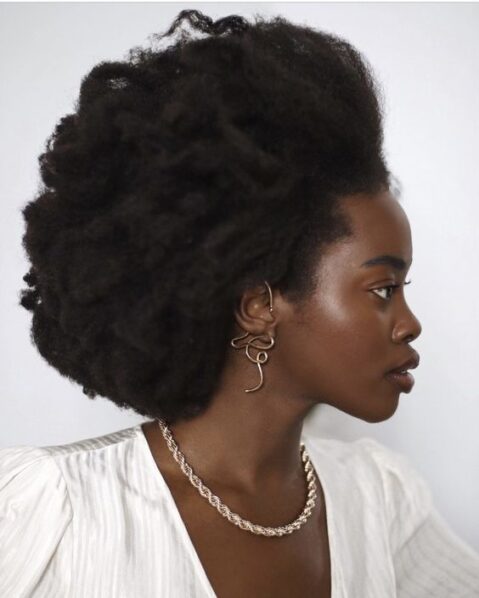
In recent years, there has been a beautiful movement celebrating the versatility and uniqueness of natural hair. Whether you have tight coils, loose curls, or anything in between, embracing your natural texture is a journey of self-discovery and self-love. To ensure your locks flourish and radiate health, here’s a comprehensive guide on how to care for your natural hair.
[ad]
Understanding Natural Hair Types
The first step to caring for your natural hair is understanding your hair type. There are four main hair types: Type 1 (straight), Type 2 (wavy), Type 3 (curly), and Type 4 (coily). Within each type, there are subcategories that further define the texture and curl pattern of your hair.
Cleansing and Conditioning
Cleansing and conditioning are essential steps in any natural hair care routine. However, it’s important to find the right balance to avoid stripping your hair of its natural oils.
Cleansing:
● For Type 1 and Type 2 hair, you can cleanse your hair daily or every other day with a mild shampoo.
● For Type 3 and Type 4 hair, you can cleanse your hair less frequently, once a week or every two weeks. Use a gentle shampoo that is specifically designed for natural hair.
Conditioning:
● After cleansing, it’s important to condition your hair to add moisture and prevent breakage.
● Use a deep conditioner once a week or every two weeks. Apply it to your hair from root to tip and leave it on for 20-30 minutes or overnight.
Styling Natural Hair
There are endless ways to style natural hair. Here are a few tips:
● For curly and coily hair, use a wide-tooth comb to detangle your hair gently. Avoid using a regular brush, as this can break your hair.
● Use styling products that are designed for natural hair, such as gels, creams, and mousses. Avoid using products that contain alcohol, as this can dry out your hair.
● If you want to straighten your hair, use a heat protectant spray before using heat styling tools.
Protecting Natural Hair
Protecting your hair from heat damage, sun exposure, and harsh chemicals is essential for maintaining healthy hair. Here are a few tips:
● Limit the use of heat styling tools, such as flat irons and curling irons.
● Wear a hat to protect your hair from the sun.
● Avoid using harsh chemicals, such as relaxers and dyes.
Detangling with Care
Natural hair can be prone to tangling, especially if you have tight curls. Rather than rushing through the detangling process, be patient and gentle. Start from the tips and work your way up with a wide-toothed comb or, even better, your fingers. Detangle when your hair is damp, using a leave-in conditioner or oil to provide slip and ease the process.
Healthy Eating, Healthy Hair: Nourishment from Within
Your hair’s health is intricately linked to your overall well-being. A balanced diet rich in vitamins, minerals, and proteins contributes to strong, vibrant hair. Include foods like fish, eggs, leafy greens, and nuts to provide your body with the nutrients it needs for optimal hair growth.
The ABCs of Natural Hair Care Products
Look for products free from sulfates, parabens, and silicones. Opt for natural oils like coconut, jojoba, and olive oil to nourish your hair. Experiment with leave-in conditioners, curl creams, and gels to find what works best for your unique curls.
Consistent Trimming
Regular trims are essential for maintaining healthy ends and preventing split ends. Aim for a trim every 3-4 months or as needed. This practice not only keeps your hair looking fresh but also contributes to overall hair health.
Nighttime Routine: Protecting Your Tresses While You Sleep
Cotton pillowcases can absorb moisture from your hair and cause friction, leading to breakage. Invest in a satin or silk pillowcase to reduce friction and retain moisture. Alternatively, use a satin scarf or bonnet to protect your curls while you sleep.
Celebrating Your Natural Beauty: Confidence is Key
Lastly, embrace your natural beauty with confidence. Your natural hair is a unique expression of who you are. Loving your natural hair is not just a physical journey but also a mental and emotional one. Celebrate every curl, kink, and coil.
[ad unit=2]








